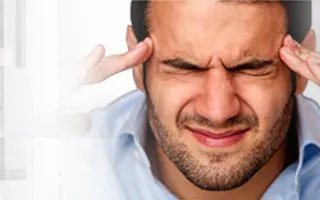Migraine - Treatment
According to the homeopathic system of medicine, migraine is a chronic disease occurring periodically. The patient may experience it as an acute problem, but because it is periodic and recurrent it needs continuous homeopathic treatment during the attack, and homeopathic medicines need to be taken even when there is no attack. All this is to reduce the frequency and intensity of subsequent attacks and eventually stop them.
In all types of acute and chronic illnesses, homeopathy applies the concept of individualisation, which means that even if two people are suffering from the same type of migraine, a homeopathic consultant will study the whole case history of each of the patients — their exact nature of symptoms, temperament, feelings, likes and dislikes — and then suggest a remedy suitable for each of them to ascertain deep-rooted and permanent cures.
Treatment approach at Dr Batra’s ™
Step 1: First Consultation – – Our homeopaths will spend 30-45 minutes with you to understand the exact cause of migraine. We will take into account your medical history, genetics, lifestyle, work and home environment. Depending on all these factors, our homeopaths suggest customized homeopathic treatment for migraine that will help you cope with it.
Step 2: Medical Diagnosis – Our homeopaths will diagnose migraine on the basis of your medical history, migraine symptoms, your family history of migraine as well as a number of physical and other advanced examinations.
Step 3: Personalized Treatment - - Natural homeopathic medicines are suggested based on the diagnosis made and extent of the condition.
Benefits of Homeopathy
- Treatment with medicines made from natural sources like plants and minerals
- Treatment customized for every patient
- Effectively treats the underlying cause of migraine
- Reduce tendency to headaches
- Improve general and mental health
Step 4: Advice on lifestyle – Making small lifestyle changes can help reduce the number of times you get migraines. Our homeopaths will guide you on to how you can change your lifestyle to ensure a healthy mind and body.
Why Dr Batra's ™?
Largest network of qualified homeopathic doctors
At Batra’s™, we have one of the largest networks of homeopathic consultants in the world with over 350 homeopaths practicing globally.
Our homeopaths are medically qualified and have completed a 5 ½ years degree course in homeopathy that includes medicine, surgery, gynaecology, anatomy, physiology, and psychology. We also have over 45 specialists MDs [Medicine in Homeopathy [M.D.(Hom)].
Customized treatment for every patient
We at Dr Batra's™ present you with holistic and personalized treatment. Our treatment extends beyond just physical symptoms, thereby correcting the deep seated emotional concerns of the patient, which in many cases are the cause of medical disorders.
E-medical records / cross referencing made easier
Centralized recording of data enables patients to consult our homeopaths in any of our clinics across the world. Cross referencing becomes much faster, thereby deriving better treatment results for patients through our past experience.




